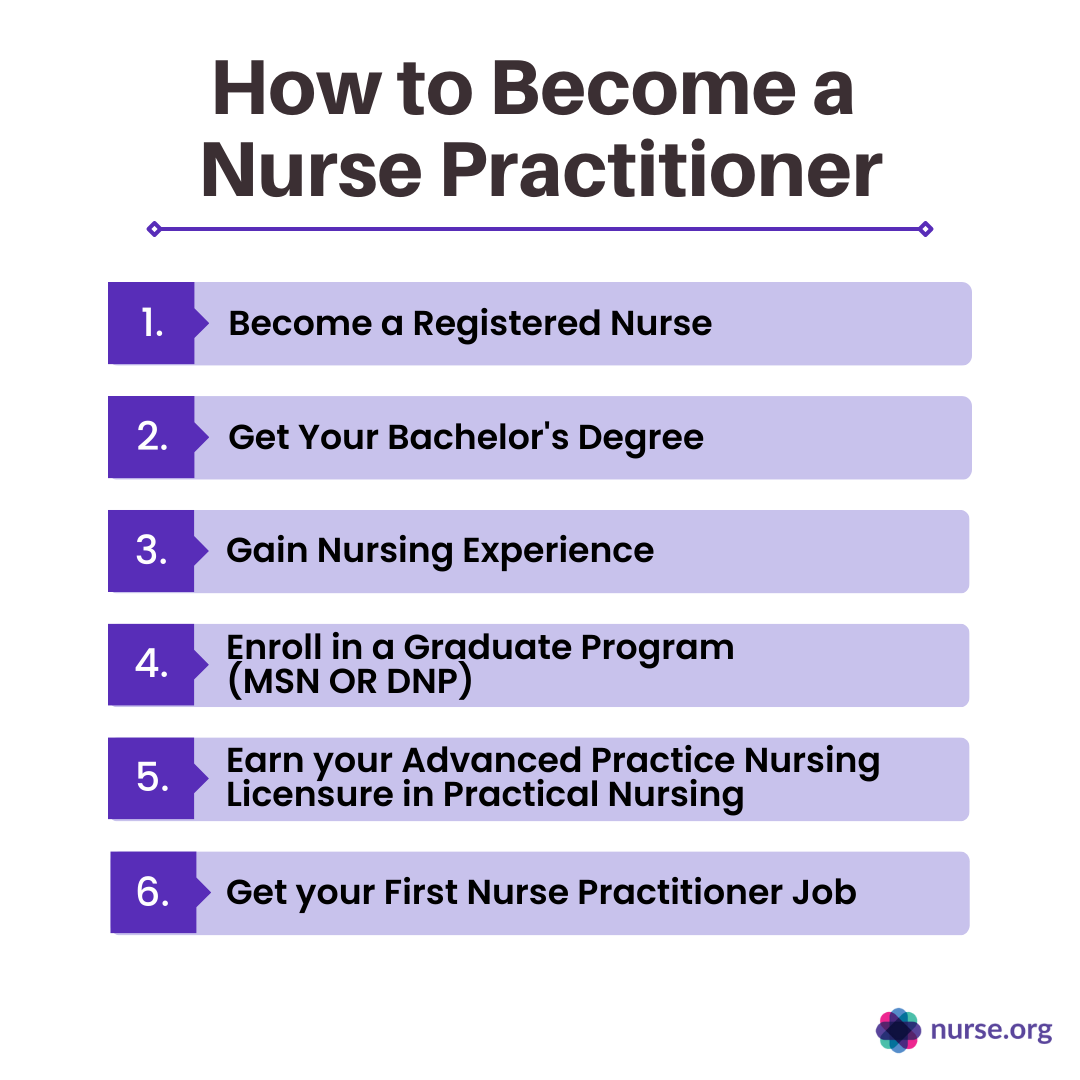Effective Ways to Become a Nurse Practitioner in 2025: Your Comprehensive Guide to Success
Becoming a Nurse Practitioner (NP) is a rewarding career path that offers diverse opportunities in the healthcare system. In this comprehensive guide, we will explore the nurse practitioner education requirements, the nurse practitioner certification process, program lengths, and more to help you navigate your way to success as an NP by 2025.

Nurse Practitioner Program Overview
This section will discuss various nurse practitioner programs, helping you determine the right educational pathway tailored to your needs. Understanding program types—such as full-time, part-time, and accelerated options—can greatly influence your journey towards becoming an NP.
Accelerated Nurse Practitioner Programs
Accelerated nurse practitioner programs are designed for individuals who already hold a registered nursing (RN) degree and want to fast-track their education. Typically, these programs can be completed in a shorter time frame than traditional programs, often in about 12 to 18 months. This is an ideal choice for those eager to advance their careers quickly. The curriculum usually includes both theoretical coursework and hands-on clinical **training**, ensuring that graduates are ready to provide quality patient care. As the demand for healthcare professionals continues to rise, these accelerated programs allow you to enter the workforce more swiftly and seize job opportunities before they become saturated.
Online Nurse Practitioner Programs
For prospective students balancing work or family commitments, online nurse practitioner programs offer flexibility in learning. These programs often provide the same rigorous curriculum as brick-and-mortar institutions but with the benefit of scheduling that fits your lifestyle. Clinical hours, however, must still be completed in person. It’s essential to ensure that your chosen online program is accredited, as this will affect your nurse practitioner certification process and licensure eligibility. Online courses might also include collaborative projects with peers, enhancing your learning experience while staying flexible.
Nurse Practitioner Program Length
The nurse practitioner program length varies based on several factors, including the type of program (accelerated, full-time, or part-time) and your prior education. Generally, obtaining a Master’s degree in Nursing (MSN) takes about two to three years, while Doctor of Nursing Practice (DNP) programs can extend this duration by an additional 1-2 years. Understanding these timelines is crucial in planning your career and ensuring you meet the clinical hours for nurse practitioners required for successful completion.
The Nurse Practitioner Certification Process
The nurse practitioner certification process is a critical step in your path to becoming an NP. Upon completing your educational program, you’ll need to pass a national certification exam specific to your chosen specialization. This section will delve into essential components of the certification process.
Nurse Practitioner Board Exams
After fulfilling your educational and clinical requirements, the next step is to pass the appropriate nurse practitioner board exams. These exams test your knowledge and competencies in various fields such as family health, pediatrics, or geriatrics. It’s crucial to prepare thoroughly using study resources, practice questions, and study groups, ensuring you are well-equipped to succeed. Passing this exam is paramount, as it qualifies you to apply for state licensure and start your NP career.
Nurse Practitioner Credentialing Process
Once you pass your board exam, the nurse practitioner credentialing process begins. Credentialing involves verifying your professional qualifications and work history. This is required before you can practice and is a critical step for employment in many healthcare settings. It’s vital to maintain organized records of your coursework, clinical experience, and residency training to streamline this process.
Continuing Education for Nurse Practitioners
Continuing education is essential for maintaining your certification and staying updated on industry changes. Throughout your career, you will need to complete continuing education requirements, which can include professional development courses, workshops, and webinars. Continued learning not only ensures compliance with certification standards but also directly translates into improved patient care, enhancing your skills and competencies as a nurse practitioner.
Nurse Practitioner Specializations
Gaining a strong understanding of the various nurse practitioner specializations available is essential in selecting the right path for your career. NPs can specialize in areas such as pediatric care, psychiatric care, or geriatric care, each requiring unique training and expertise.
Choosing a Nurse Practitioner Specialty
Choosing a nurse practitioner specialty should align with your personal interests and career goals. Consider, for example, whether you prefer working with children, older adults, or mental health patients. Each specialization not only requires different skills and training but also offers different job prospects and earning potential for nurse practitioners. Researching the job outlook in your chosen field can offer insights into your future employment opportunities.
Nurse Practitioner Residency Programs
Participating in a nurse practitioner residency program can provide valuable real-world experience after your education. These programs typically last 12-24 months and place newly qualified NPs in clinical environments where they can work alongside experienced practitioners. The immersion in a real-world setting helps smooth the transition into practice while allowing you to refine your patient care skills under supervision.
The Impact of Nurse Practitioners in Healthcare
Nurse practitioners play a crucial role in healthcare, expanding access to care, especially in underserved populations. Their ability to provide primary care, perform clinical assessments, and manage patient cases directly affects healthcare quality and patient outcomes. Studies show that NPs provide comparable care to physicians, allowing them to fill essential positions in the healthcare workforce.
Key Takeaways
- The nurse practitioner program length varies and can be tailored to fit your needs with full-time, part-time, or accelerated options.
- Certification as a nurse practitioner is crucial and requires passing the board exam and completing the credentialing process.
- Specializations offer diverse career paths, allowing you to tailor your career based on interests and job market demand.
- Continuing education is necessary to maintain licensure and keep skills updated in a rapidly changing healthcare environment.
- Nurse practitioners have a significant positive impact on overall healthcare quality and access, emphasizing the need for their role in today’s system.
FAQ
1. What are the nursing licensure requirements for nurse practitioners?
Nursing licensure for nurse practitioners typically requires completing an accredited nursing program, passing the National Council Licensure Examination for Registered Nurses (NCLEX-RN), and obtaining national certification. Each state has specific requirements, so it’s essential to review your state Board of Nursing guidelines.
2. How many clinical hours are required for nurse practitioners?
Most nursing programs require students to complete between 500-700 clinical hours for nurse practitioners. These hours must be supervised by experienced healthcare professionals and are crucial for gaining hands-on experience before becoming licensed.
3. What factors affect the nurse practitioner program duration?
Factors influencing nurse practitioner program duration include your prior education (such as an associate or bachelor’s degree), whether you attend full-time or part-time, and the specific program’s structure. Generally, the comprehensive nature of the coursework will also play a role in determining total completion time.
4. Can I work while completing my nurse practitioner education?
Yes! Many students choose to enroll in part-time nurse practitioner programs, allowing them to work while pursuing their education. Flexibility varies among programs, enabling adjustment based on individual schedules and commitments.
5. What is the nurse practitioner job outlook for the future?
The nurse practitioner job outlook is optimistic, with projections indicating substantial growth in demand through 2025 and beyond. This demand is fueled by an aging population, a greater emphasis on primary care, and the expanding scope of practice laws for nurse practitioners nationwide.
6. What are the roles and responsibilities of nurse practitioners?
Nurse practitioners are responsible for providing patient care, which includes diagnosing illnesses, prescribing medications, managing treatment plans, and conducting health assessments. Additionally, they play a crucial role in patient education and advocacy, significantly impacting health outcomes.
7. What continuing education options are available for nurse practitioners?
Continuing education opportunities for nurse practitioners include conferences, online courses, workshops, and specialization certifications. These options help keep NPs informed about the latest advancements in medical knowledge and treatment protocols.

